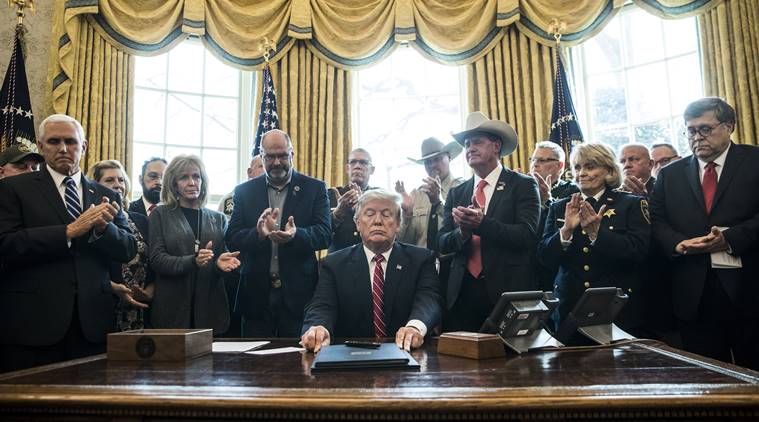
By Lisa Friedman
The White House tried to stop a State Department senior intelligence analyst from discussing climate science in congressional testimony this week, internal emails and documents show.
The State Department’s Bureau of Intelligence and Research declined to make changes to the proposed testimony and the analyst, Rod Schoonover, an adjunct professor at Georgetown University, was ultimately allowed to speak before the House Permanent Select Committee on Intelligence Wednesday.
But in a highly unusual move, the White House refused to approve Schoonover’s written testimony for entry into the permanent Congressional Record. The reasoning, according to a June 4 email seen by The New York Times, was that the science did not match the Trump administration’s views.
“The testimony still has serious concerns with internal components and focuses heavily on the science,” Daniel Greenwood, deputy assistant to the president in the White House office of legislative affairs, wrote in an email. “Because it doesn’t reflect the coordinated IC position, or the administration’s position, there is no way this can be cleared ahead of the hearing,” he wrote, using government shorthand for the intelligence community.
Norman Ornstein, a resident scholar at the American Enterprise Institute, a conservative policy group, said that it was common for the White House to vet agency testimony to Congress to ensure it did not contradict administration policy.
But, he said, “I have never heard of basic facts being deleted from or blocked from testimony.” Ornstein said withholding the analyst’s written testimony was significant. A verbal presentation could be interpreted as an individual’s position, he said, but “the written testimony is a more formal expression of a department.”
On almost every page of Schoonover’s testimony, the National Security Council offered comments and criticisms, according to a document that tracks changes. Two people familiar with the document said the notes were from William Happer, a physicist and White House adviser on the council who denies the established scientific consensus on climate change.
“This is not objective testimony at all,” one comment read. “It includes lots of climate alarm propaganda that is not science at all. I am embarrassed to have this go out on behalf of the executive branch of the Federal Government.”
Schoonover’s testimony noted that his analysis drew from peer-reviewed scientific journals and work produced by top U.S. government scientists. That, too, came under attack from the National Security Council, which said that “a consensus of peer reviewed literature has nothing to do with the truth.”